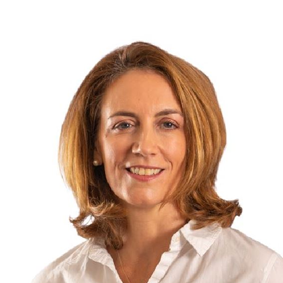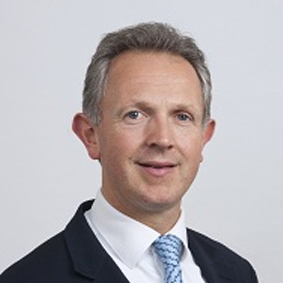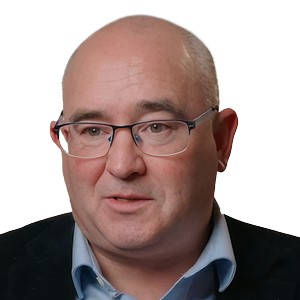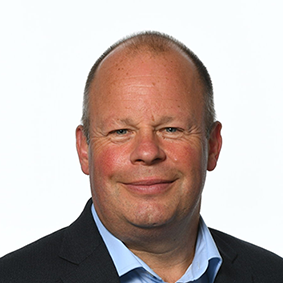In the short term, most leaders have wisely abandoned hopes of a predictable business environment to help them plan for the future. So, does that mean long-term strategy has gone the way of the dodo too? Quite the opposite – successful CEOs have taken the opportunity to refresh their approach, triggering a strategic evolution.
In Criticaleye’s latest
CEO Research, a concerning 77 percent of chief execs acknowledged that they need to create more time for long-term planning. They also said the Board discussions that do take place aren’t always fit for purpose, with nearly 70 percent saying debate around strategy must improve.
With this in mind, we asked leading CEOs from the Criticaleye Community to describe how they are maintaining a forward-looking approach amid today’s uncertainty. This is what they said:
Justin Ash, CEO of FTSE 250-listed Spire Healthcare, has put new structures in place to support innovation for long-term success.
Last year, we had to be really disciplined and not forget about the future. We set up an innovation board with a separate structure and resources.
We started building a pipeline and investing. You have a big funnel coming in, you’re prepared to back things that may or may not work and you allocate capital to ideas. You apply a different filter to what success looks like, so you don't kill things because they’ve got to hit a certain return. We’ve got an interesting innovation pipeline now, and that is exciting.
Separately, we have a transformation board, which is about how we evolve the business in the short-to-medium term. A lot of that is about digitisation.
We started process mapping the nature of the change. That allows us to score projects, and in particular the touch points for key deliverables, for example on hospital directors. People still start saying, “We've got too much on”, but this process, slowly but surely, reduces that debate.
You could not do this without an outstanding team and the right systems. Without that investment in infrastructure and capability then most chief executives would end up going with the first answer they thought of.
Deborah Frost, CEO of employee benefits specialist Personal Group, is asking senior leaders to look beyond business as usual and bring in new ideas.
We've become more focused on developing what isn't ‘business as usual’. We're being really clear about what other things we should be paying attention to as a senior leadership team (SLT), above and beyond our day jobs.
The focus is about getting the team below the SLT to deliver business as usual. I often say to my new senior leadership team, “The strategy for your division, your interpretation of what our overall goals are and how you will deliver that in your area – no-one else in your team does that. That is your job. So, if you're not doing it, no one's doing it.”
That's the same route I take myself. The overall strategy for the business and clarity about where we're playing, what we need to do to win, what our goals are, if I'm not working on that – and making that real for myself, the Board and the SLT – then there isn't anyone else doing it.
In the worst of COVID, we also started setting ourselves micro goals, because the three-year plan feels distant and who knows what other mountains we might have in between now and then. That enables us to make progress in a meaningful timeframe and gain traction for ourselves and our direct reports.
Stephen Harrison, CEO of building products manufacturer Forterra, is using a strong cash position to refresh the business strategy, while remaining agile.
There are labour shortages, supply chain shortages and spiralling costs, but, fundamentally, the market and demand for the products we make are still very strong. You've got to park today's uncertainties, challenges and frustrations and still look at the longer term.
We made it a bigger thing last year and, as a Board, we decided to refresh our strategy. When our trading ceased, short term in 2020, we were concerned about cash and so we raised some money. The market came back faster than anyone predicted, so we found ourselves in a stronger than expected cash position… and the investors were asking, “What are you going to do with this?”
We have laid out our plans and our priorities for capital deployment. We've said we want to invest £200 million organically over the next ten years; we've increased the dividend and if we have spare cash on top, and there's no M&A, we'll look at further returns.
People get hung up on the word strategy, but probably the more important word at the moment is agility. The world’s moving quite fast, including from a sustainability point of view. You’ve got to be prepared to revise your strategy and for it to evolve. You can’t say: “This is what we wrote down and communicated, so this is what we're going to do."
Matthew Blagg, CEO of Criticaleye, believes CEOs must reprioritise EQ over IQ as they bring their people back together.
Many businesses spent a large proportion of the past two years being very transactional – COVID hit, and it was all about making it through the crisis. Now it’s time for leaders to look at things from a different angle, but that won’t be easy. Longer-term thinking is a muscle, and if you don’t use it then it wastes away.
CEOs must reawaken the curiosity in themselves and in their top teams. It’s about bringing people back together to have real discussions rather than a more functional debate.
Informal, face-to-face meetings will also be crucial. You must have an environment where you can break away from formal dialogue and throw ideas around.
The last two years have also seen many CEOs relying more on their IQ than their EQ. Some leaders have become too comfortable working from home, and we need to meet up with our people to motivate, challenge and inspire them.
You can have a great strategic debate at the top, but then you need to back that up with the right culture in the rest of the organisation – one that is creative and also delivers results.



